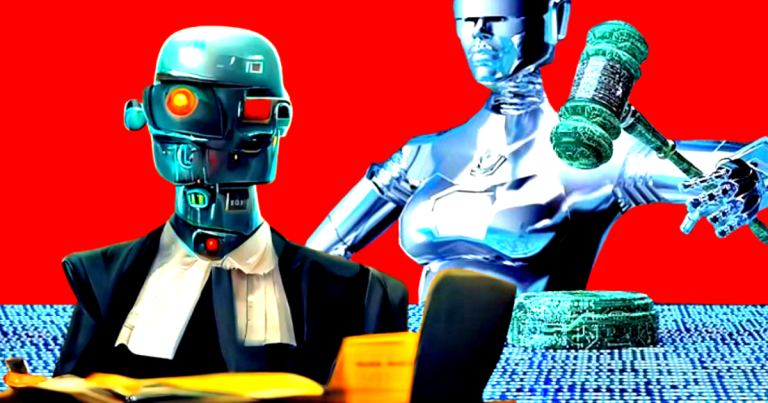
A lot of people are tired of the whole AI thing. Some even feel that if they never hear about it again, it will be soon enough.
But whatever our personal feelings, it cannot be denied that these technologies are spreading like wildfire in many areas of activity.
Read: The vast majority of American workers believe that artificial intelligence can do their jobs
Once they enter the world of regulators, law enforcement, and the judiciary – as they are now doing – the consequences for our civil liberties become impossible to ignore.
Consider the following: England's 1,000-year-old legal system — wigs, gowns and all — gives judges permission to “use artificial intelligence to assist in sentencing.”
Yes, you read that correctly.
Read: A reference to human AI: UN thinks it is wise to ask robots about the risks of AI – regulators hide the fact that the answers were written and pre-programmed
The Associated Press reported:
“The bench said last month that artificial intelligence could help write opinions, but stressed that it should not be used for research or legal analysis because the technology can fabricate information and provide misleading, inaccurate and biased information.
“Judges need not avoid careful use of AI,” said Master of the Rolls Geoffrey Vos, the second-highest-ranking judge in England and Wales. “But they must ensure they maintain trust and take full personal responsibility for everything they produce.”
Read: Music and artificial intelligence: a beautiful duet or completely dissonant?
The profession that is slow to embrace technological change reacts to rapidly advancing technology that is alternately portrayed as a panacea and a threat – or both.
“There is a strong public debate at the moment about whether and how to regulate AI,” said Ryan Abbott, a law professor at the University of Surrey and author of The Reasonable Robot: Artificial Intelligence and the Law.
“AI and the judiciary is something people are uniquely interested in, and it's a place where we're particularly careful about keeping humans informed,” he said. “So I think AI may be slower to disrupt judicial activity than it is in other areas and we will move more cautiously there.”
US Supreme Court Chief Justice John Roberts addressed the use of AI in his annual report, but America's federal court system does not have any guidance on AI.
Moreover, state and district courts in the United States are too fragmented to take a global approach.
Cary Coglianese, professor of law at the University of Pennsylvania: “It is certainly one of the first, if not the first, set of published guidelines relating to AI in the English language that is broadly applicable and directed at judges and their staff,” Coglianese said of the guidelines for England and Wales. “I suspect that many, many judges have warned their staff internally about how existing policies regarding confidentiality and Internet use apply to public portals offering ChatGPT and other similar services.”
Read: Lawyer gets serious suspension for filing 'fake' claim using AI
The danger of the technology has already been demonstrated in the infamous incident where two New York lawyers relied on ChatGPT to write a legal brief citing fictional cases. The two were fined by an angry judge who called the work they signed “legal gibberish.”
Read more:
AI killing jobs: Dreamworks' Katzenberg says AI will replace 90% of human artists needed to make an animated film

